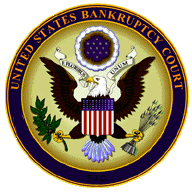 When a produce company files a chapter 11 bankruptcy case, one of the first questions my PACA trust creditor clients ask is whether the debtor will be able to keep any cash it may have in the bank or any cash it receives from collecting its accounts receivable.
When a produce company files a chapter 11 bankruptcy case, one of the first questions my PACA trust creditor clients ask is whether the debtor will be able to keep any cash it may have in the bank or any cash it receives from collecting its accounts receivable.
The answer is that the debtor almost always has a bank or other secured creditor which holds a lien on substantially all of its assets. Property like inventory, machinery and equipment and the like is called hard collateral. Such items can be used and sold in the ordinary course of business in a chapter 11 case.
Liquid assets, like cash, bank accounts, and accounts receivable, however, are a different matter. These are called “cash collateral.” And cash collateral may not be used over the objection of a secured party without a court order. This order is called the “cash collateral order.” Simply put, the purpose of a cash collateral order is to allow the debtor to utilize its cash collateral even though the cash collateral is subject to the liens of a secured party. To do this, the debtor must provide its secured lenders with adequate protection (e.g. replacement liens in post-petition assets, super-priority administrative claims, etc.) necessary to facilitate the use of the cash collateral. Because the debtor’s ability to use its cash collateral is critical to its ability to successfully emerge from a chapter 11 filing, debtor’s counsel often seek court approval of a cash collateral order on the very first day of the bankruptcy filing.
If you are a PACA trust creditor, you must be mindful of the cash collateral order process because there are almost never any provisions included in a cash collateral order that protect the rights of the PACA trust creditors. As a result, a savvy PACA trust creditor will immediately object to the debtor’s use of cash collateral and create a seat at the negotiating table for the PACA trust creditors. A well advised PACA trust creditor understands the debtor’s obligations under PACA and will generally make the following objections to debtor’s use of cash collateral:
- The scope of the PACA trust covers the debtor’s cash collateral as a matter of law
- PACA trust assets are not property of the debtor’s estate
- The debtor cannot use non-estate property as cash collateral
- The debtor cannot use PACA trust assets as collateral for post-petition financing
A timely filed objection to a debtor’s attempt to obtain a cash collateral order will often result in the full and immediate payment of the PACA trust claim. When that is not possible, the objecting PACA trust creditor will have the ability to either seek adequate protection (just like a secured party) from both the debtor and its secured creditors or force the case to convert to a chapter 7 liquidation case. Remember, a chapter 11 case will not stand if there are no estate assets to administer.
Key Point: If the PACA trust creditors do not act quickly when they are notified of a produce buyer’s insolvency, the debtor will obtain a cash collateral order that does not include any protections for PACA trust creditors. If that happens, the cash collateral order will allow the debtor to use trust assets (the Court won’t know unless someone speaks up) to administer its estate, obtain DIP financing, and otherwise place trust assets out of the PACA trust creditors reach (e.g. paying pre-petition wages, etc.)




